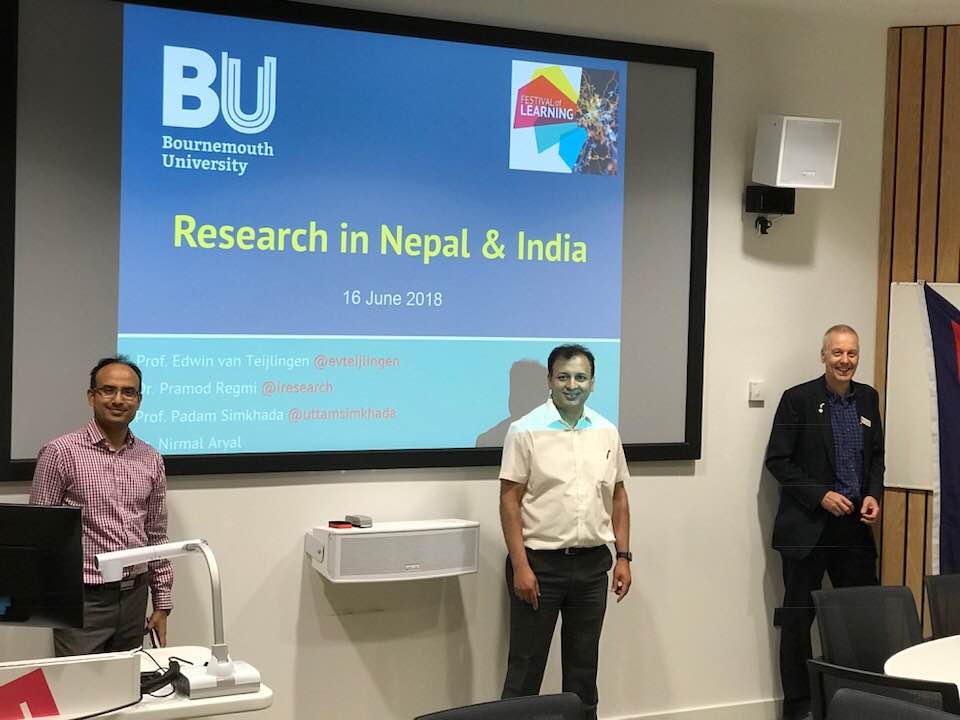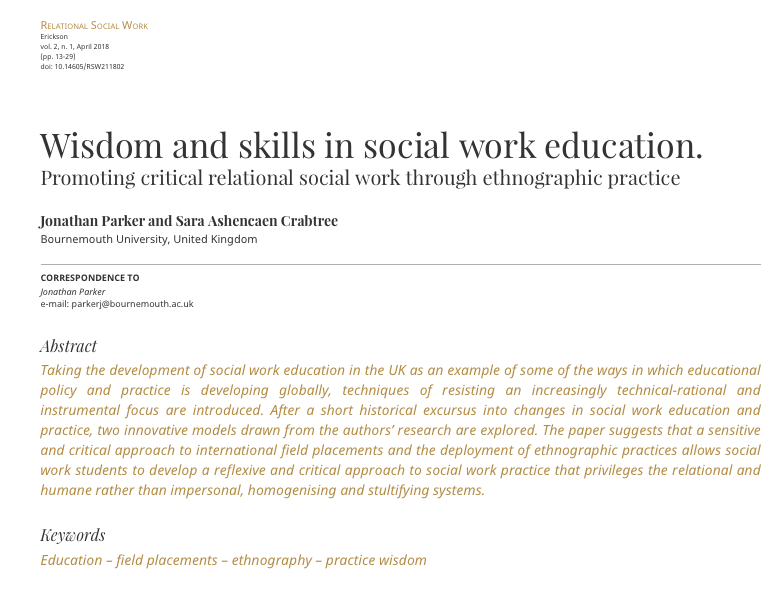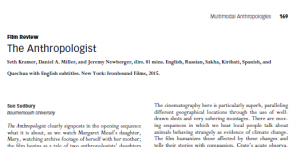HEPI Student Experience Survey
The Higher Education Policy Institute (HEPI) and Advance HE have published a joint report on student academic experience. The report was launched at the annual HEPI conference and Sam Gyimah gave the keynote address.
The report includes a lot of insight and is worth looking at – there are some new questions this year too. The headlines focussed on two things – value for money (which has had a step up this year after years of decline) and mental health and wellbeing (which is declining amongst students).
They asked the respondents to consider what influenced their views on value for money – price driving perceptions of poor value and quality of good – perhaps not surprising – and that doesn’t tell the whole picture. They also asked about how fees should be spent and it is interesting to note that campus development is high.
Commenting on the publication of the 2018 HEPI Student Academic Experience Survey, Yvonne Hawkins, director of teaching excellence and student experience at the Office for Students, said:
- ‘We welcome the publication of the HEPI Student Academic Experience Survey – this kind of analysis underlines the importance of listening to students and capturing their voices. It also improves our understanding of what matters to them.
- ‘While we note the survey’s findings on value for money, and the fact that a slightly higher proportion of students feel they have received good value for money this year, significant numbers of students report not being satisfied with their higher education experience. Overall the results send a clear signal that there is more work to be done.
- ‘The concerns identified in the survey about the experience of particular student groups, and about student wellbeing, go to the heart of the OfS’s aim to ensure that every student, whatever their background, has a fulfilling experience of higher education that enriches their lives and careers.
- ‘Students have a diversity of perspectives on what constitutes ‘value for money’. We are working closely with our student panel to ensure that we understand and respond to students’ priorities. Our goal is to ensure that students have the information they need to make informed choices, receive high quality teaching and support, and know how providers are spending their income from tuition fees.’
Commenting on the Advance HE and the Higher Education Policy Institute (HEPI) Student Academic Experience Survey, Sir Peter Lampl, founder of the Sutton Trust said:
- “It is good to see that more students feel their degrees are providing value for money. However, there’s only been a 3 percentage point increase and it’s just not good enough that only 38% perceive they are getting good or very good value from their course.
- “In sharp contrast 60% of students in Scotland and 48% in Wales – where fees are lower or non-existent – think their courses are good value.
- “English graduates leave university with debts of over £50,000. A more fair and affordable fees system would increase the number of students who believe they are getting value for money. To do this we need to see the reintroduction of maintenance grants and means-tested tuition fees.”
Value for money
Sam’s speech at the HEPI event focussed on value for money – linked to student choice. The Minister referred extensively to the latest IFS research into the LEO (Longitudinal Education Outcomes) data. The research is here and the LEO data is being released in full on 21st June.
The IFS analysis shows that women who study one of the bottom 100 courses have earnings up to 64% (approximately £17,000) less than the average degree after graduation. For men, it can be up to 67% (approximately £21,000). The analysis – commissioned by the Department for Education (DfE) – finds that family background has an important impact on graduates’ future earnings, as well as subject and institution choice.
The Minister said
- “Today’s publication has important and far-reaching ramifications for the debate on value for money in Higher Education.
- These findings demonstrate that studying the same subject at a different institution can yield a very different earnings premium. The choices that students make about what and where to study does matter.
- We must build a system where everyone with the ability to benefit from a university education has the opportunity to attend, the information they need to make the right decision, and that when they go to university, they receive a first-rate education that delivers real value for money.
The Minister went on to challenge universities to review their offer to students:
- The clutch of underperforming degrees is a problem for students – it is likely they include many of the courses whose students feel they are not getting value for money.
- I believe mass participation in higher education is here to stay and is key to our economic future. But for this vision to be realised in full, universities need to focus relentlessly on value for money.”
In the coming weeks, Sam Gyimah will launch an Open Data competition – the first of its kind in the UK Higher Education sector – allowing tech companies and coders to use government data on universities to help students decide where to apply.
After his recent visit to BU, Sam mentioned us in his speech:
- One sometimes hears the critique that Britain focuses too much on university degrees and not enough on vocational learning. Vocational and technical skills are vital.
- But I reject the false dichotomy between university and vocational education. In fact, much of Britain’s best vocational education goes on in degree courses in universities.
- Take Bournemouth University’s computer animation and visual effects courses, whose graduates have gone on to work on some of the biggest movies of the past decade… In all these cases – and countless others – universities have engaged with the wider world and are delivering courses that combine first-rate education with excellent outcomes for students.
Responding to the IFS report and comments from the minister, Alistair Jarvis, Chief Executive of Universities UK , said: “It is right to expect that students receive a high quality education and that all universities offer a high value experience.
- “A university degree remains an excellent investment. On average, graduates continue to earn £10,000 per year more than the average non-graduate and are more likely to be in employment. When looking at graduate salaries, it is important also to take into account the regional differences and socio-economic inequalities that exist in society, that a university degree cannot fully address.
- “It is important that we do not use graduate salaries as the single measure of value. Many universities specialise in fields such as the arts, the creative industries, nursing and public sector professions that, despite making an essential contribution to society and the economy, pay less on average.
- “A priority must be to make sure that all students receive timely and accurate information about different university courses, to ensure that their experience matches their expectations. Universities are keen to work with government to enhance information for students.”
At the conference and since, there has not surprisingly been some pushback on the research and the use that the Minister is making of it. “The clutch of underperforming degrees is a problem for students – it is likely they include many of the courses whose students feel they are not getting value for money.”
The problem with this assertion of course is that there are no students on these courses. This data is from students who graduated years ago. Those courses may not be offered any more or will have changed out of all recognition since those students graduated.
And that’s before you start unpicking the other challenges with using this data in this way. Louis Coiffait from Wonkhe and Pam Tatlow both asked about regional employability differences and the issues with comparing nationally. See the article on Research Professional here and the Wonkhe article here and here.
The research report itself questions this use of the results (page 10):
- “Our findings significantly expand understanding of the variation in graduate earnings; however, we cannot argue that our findings can definitely be interpreted as the true causal effect of different subjects and institutions. We use new exciting data and apply sophisticated methodologies to control for the selection into HE courses, and in so doing move beyond the existing literature in UK. However, selecting an institution and subject to study is an inherently non-random process. It reflects the skills and preferences of young people, and may be affected by unobservable traits, such as confidence or other soft skills, that also determine labour market outcomes.”
And
- “Furthermore, we do not observe identical people (even on observable characteristics) at multiple different institutions and the impact of a specific course may be different for different types of people. We estimate the average effect based on the people that take that course. For example, we are not claiming that all individuals would have higher earnings if they studied medicine.”
Your policy team are finding it rather frustrating to see everything reduced to an average in this way. Although this sort of comparison might (subject to all of the issues above) make sense for a programme that leads directly to a specific career, it makes no sense at all if graduates are going on to do a range of jobs that bear no relation to each other.
In the old days, if you planned to do languages at university, a careers adviser would suggest that you could go on to teach or be an interpreter (I had that conversation). Of course even in those days language students actually could go on to do a whole range of things, many of them nothing to do with their language skills, with salaries that varied enormously.
So applicants thinking about a degree in modern foreign languages (if they are interested in salary outcomes at all, which is another question) might be interested in the differences between salaries earned by languages graduates from one university rather than another, if they have a particular career in mind. If I want to be an interpreter I might (and I mean might) want to know where the best paid interpreters studied. But a cohort of language graduates from uni b who earned less than a cohort from uni a –where both cohorts include a random number of graduates who teach, become bankers, are academics, translate novels, are civil servants, work for the BBC world service, are ski instructors, lawyers, mountaineers, professional cricket players, work in advertising, are poets, musicians or artists, run a cupcake business, write computer software, work in Sainsbury’s or anything else– really, what is the point?
Whether your degree pays for itself is a function of a lot of things – such as what your degree is, and where you do it, but also what you did before you went there, where you live, where you work, the state of the national and local economy, what career path you choose now and in the future, your gender, your age, your ethnic group, your family background, your disabilities, how hard you work at university and at work, the culture, policies and success of the organisation you work for, your other life choices…and many more.
So putting aside for now the philosophical debate about whether the value of higher education should be measured by salaries, there is also a practical problem here – it just can’t be done. The timelines are too long and there are too many variables. And this debate is not just philosophical –the TEF now includes an assessment based on LEO of whether graduates earn above the median earnings threshold – and it might have a role to play in differential fees in the HE review.
Meanwhile Nicola Dandridge wrote for Wonkhe on how the Ofs will address value for money.
- We will be doing this partly through our regulation of individual providers where our conditions of registration will ensure a common, high quality threshold for all registered providers. These conditions include requirements that applicants and students should be provided with accurate information about their course and their provider, and also that effective arrangements are in place to provide transparency and value for money for all students and taxpayers.
- At the same time we will seek to empower students to make informed decisions about where and what to study. We will want to ensure that all students have a general understanding of what their higher education experience will be like and how much it will cost – including, as our survey highlighted, additional costs outside of tuition fees. Achieving this depends on the provision of information which makes sense to students. We will seek to empower students to make informed decisions about where they study, and strengthen their ability to challenge poor value for money once they are enrolled. Transparency will be one of the ways we will make this happen.
- This is still work to be developed and we will be working with our Student Panel and engaging with students and other stakeholders over the coming months to ensure their views inform our response. But our objective is clear: by addressing these common themes, we will have more students reporting that they have received value for money, and that has to be a priority for us all.
Jim Dickinson wrote for Wonkhe on value for money from a different perspective – not related to salaries
- Inside universities, it’s almost too easy to debunk. You can argue that multiple meanings and motivations make “value” impossible to meaningfully measure. You can argue that the total “money” that is paid varies according to earnings and the rules of the loans system. You can argue that “value” is only created in later life. You can point out that in many cases the money isn’t paid by the user, or that the benefits are to wider society, or that it distorts student behaviour, or that what you get is difficult to compare or that, anyway, it’s all neoliberalism.
- One of the often-used arguments against this agenda centres on deferred benefits and impacts. “Value is created when students realise their potential”, goes the argument – or it’s created when students “benefit from their education in later life”, or even “when they earn more”- all of which render the measurement of VfM meaningless.
- But the argument misses the point. Of course, I only get “value” from a TV if I watch it, or “value” from a gym membership if I bother to go. But that doesn’t change the fact that unlike a gym or a TV purchase, university is a public endeavour jointly funded by the taxpayer and the student. Both groups have the right to demand standards in the service being offered. Both groups also have the right to ask that regulation ensures that their money isn’t being wasted.
- One of the classic public policy mistakes of universities in their response to massification and marketisation has been simply to sneer. But VfM gets deployed by policymakers not just as a fig leaf in return for high fees, but because it’s popular – right across society, there is something simplistically positive about getting good value for money and something viscerally unpleasant about the feeling of being ripped off.
- Ministers know this. The public wants it. Being part of society rather than above it, spending oodles of its money and engaging with half the population in the endeavour requires engagement with it, not dismissal. And accepting the desire for value for money as a legitimate concept is central to understanding how government policy and the new market regulator will develop over the next decade.
And some more perspectives from Louis Coiffait on Wonkhe here “The argument here is not to ignore money and efficiency, but also not to be too myopic about such things. It’s necessary not sufficient, a means not an end. Money is an output, not an outcome.” Hurray.
TEF
It’s been a busy week for TEF news with the year 3 results coming out. Much of the sector press commentary has focussed on the potential for gaming – a Guardian article criticised the gold/silver/bronze awards system and suggested the Minister would be wise to cancel the TEF, that it doesn’t really measure what it sets out to do and the costs to run it are far higher than the benefits. There is a planned parliamentary review in 2019
Subject-level TEF continues to be mentioned in parliament. This week Gordon Marsden asked:
Q – Gordon Marsden: what discussions he has had with representatives from universities on his proposals for a subject-level version of the Teaching Excellence Framework.
A – Sam Gyimah: The department has met regularly with university representatives about the development of the Teaching Excellence and Student Outcomes Framework (TEF) at subject level. Between 12 March and 21 May, we also undertook a technical consultation on subject-level TEF. This consultation provided an opportunity for all stakeholders, including universities and other higher education providers, to comment on the proposals for subject-level TEF both in writing and at consultation events.
It was interesting that in his speech, the Minister said very little about it. We were expecting a defence of it, but there wasn’t one.
Latest News
The latest news on our regularly featured topics.
Immigration – Immigration Caps remain controversial. The HE sector is concerned to maintain freedom to recruit from the international talent pipeline and attract the brightest and best minds to teach and research in the UK – but without additional fees and charges. This week at Prime Minister’s Questions the fear around immigration fees was highlighted in the case of Grimsby Hospital. Melanie Onn MP (Labour) stated that Grimsby Hospital had been forced to pay £50,000 a month on fees for doctors’ visas. 85% of those applications had been rejected because of restrictions that May imposed as Home Secretary. Onn asked if NHS staff would be exempted from the cap. May responded that she was aware of the issue. The Government had already taken action in relation to nurses and were currently looking at recent figures to determine what further action should be taken to solve the problem.
Brexit – A parliamentary question clarifying whether the Brexit White Paper will specifically cover HE matters:
Q – Gordon Marsden: To ask the Secretary of State for Exiting the European Union, whether the Government plans to include sections on (a) higher education and (b) further Education in the forthcoming Brexit White Paper.
A – Robin Walker: The White Paper will offer detailed, precise explanations of our position, and set out what will change and what will feel different outside the European Union. It will cover all aspects of our future relationship with the European Union, building on the ambitious vision set out by the Prime Minister in her speeches in Mansion House, Florence and Munich.
As the Prime Minister said in her Mansion House speech on 2 March, ‘There are many other areas where the UK and EU economies are closely linked – including education and culture.’ And we will continue to take part in specific policies and programmes which are greatly to the UK and the EU’s joint advantage, such as those that promote science, education and culture.
Senior Pay – The Committee of University Chairs has published The Higher Education Senior Staff Remuneration Code for senior staff. Commenting on the publication of the new code Nicola Dandridge (Chief Executive, OfS) stated: “Later this month, the Office for Students will publish its accounts direction for universities and colleges. We will set out our increased expectations around transparency for senior pay, and will be expecting all higher education providers to justify how much those who lead their organisations are paid. Where an institution breaches our regulatory conditions, we will not hesitate to intervene.”’ The Universities and Colleges Employers Associated have commented here.
OfS – The Office for Students (OfS) is set to take on a greater regulatory role and be differently focussed than HEFCE was. If you’re not quite sure what the OfS encompasses the House of Commons library have a neat little reference briefing to catch you up. Its sets out how the OfS was established, their duties, the regulatory framework, the Provider Registers, Degree Awarding Powers and University Title, quality and standards, data collection, participation and access and the issues of contention raised against OfS so far.
Admissions – On Thursday the Lords debated equality within Admissions. Contact Sarah if you would like the content of this. – School attainment has kept up with the rise in undergraduates – the growth in student numbers has not lead to university entrants having lower qualifications. This week Universities UK published Growth and Choice in University Admissions. Wonkhe report that since 2010, increased competition for students has emerged in the UK higher education sector due to the nationwide decrease in the number of 18-year-olds and the removal of student number controls. Universities are now making more offers to a wider range of students throughout the recruitment cycle. The report shows that this has not led to a decline in the prior attainment of the students going to university. As undergraduate acceptances have increased, average student attainment has also risen. The story is covered in the Times here.
Alistair Jarvis, Universities UK Chief Executive, said the analysis shows the changing face of university admissions:
“Reforms to the university system have led to more students, greater choice for them and increased competition among universities. This analysis shows that university entrants continue to be highly qualified and increasing numbers of applicants are accepted with vocational qualifications at all types of universities. This has made it possible for people from a broader range of backgrounds to benefit from a university education.
“There are a growing range of university courses with a vocational focus, from traditional undergraduate degrees such as architecture and engineering to newer courses like degree apprenticeships in cyber security. In fact, four in ten university courses could be considered vocational in some way.”
Nursing Application Decline
Q – Rushanara Ali: To ask the Secretary of State for Health and Social Care, what assessment he has made of the effect of the withdrawal of NHS bursaries on the number of applications for nursing degrees.
A – Stephen Barclay: The University and Colleges Admissions Service (UCAS) published data 5 April 2018 which shows that the number of students applying to study nursing and midwifery has decreased by 13% from this point in the cycle last year.
There is still strong demand for nursing courses with more applicants than available training places. The UCAS data show that up to March 2018 there had been around 1.4 nursing and midwifery applicants per available training place. The university application cycle for 2018/19 is on-going up until 30 June 2018. Applications received after 30 June are entered in to Clearing.
In support of this, Health Education England has recently launched a national clearing campaign to recruit more students to courses in the lead up to the end of clearing, 23 October 2018. Further information is available at: https://www.healthcareers.nhs.uk/knowaboutnursing
Officials in the Department are also introducing the ‘golden hello’ incentive scheme for postgraduate nursing students, which I announced on 9 May.
These payment incentives offer £10,000 to future postgraduates who completed courses funded by loans in the 2018/19 academic year and are anticipated to be contingent on these graduates working in specific fields of the health and care sector including mental health, learning disability and community, including district, nursing.
Digital Student ID Cards
Inside Higher Ed report that Apple and Blackboard are using Near-Field Communications technology to create a digital student ID card for the iphone and Apple Watch. The student’s device can be waved past the card reader for standard services such as taking out library books, gym or halls access, paying for lunch or printing credits. Six American Universities go live with the system this autumn.
Widening Participation & Achievement
Dominating Monday was criticism towards Cambridge for their poor diversity and acceptance of black applications. It was widely discussed on Radio 4 and in the press: Cambridge: BBC, Guardian, FT and TImes. Oxford was discussed in the FT and Wonkhe delved a little more widely in their consideration of Oxford as an institution. Malia Bouattia took to the Guardian to reemphasise the UCAS troubles but also to highlight that racism in education is entrenched as a far earlier age.
On Wednesday UUK and NUS launched a joint call for evidence to help universities tackle the BME attainment gap. Between 2007 and 2016 there was an almost 50% increase in the number of BME undergraduates in England. However, the disparity in achievement outcomes continues – 78% of white students who graduated last year ended up qualifying with a first or a 2:1, 66% of Asian students achieved the same, and 53% of black students. Prior qualifications have an influence on the attainment gap, however are not the whole story.
The BME attainment gap is well known in the sector and many universities are trialling a wide range of initiatives to reduce the gap. However, progress has been slow and inconsistent across the sector. UUK and NUS have made a direct call to students, their representatives and university staff to identify best practice in closing the attainment gap.
The work aims to:
- Increase understanding of the barriers to BME student success
- Identify initiatives that have been successful in addressing this
- Share experiences and best practice of what works in narrowing the BME attainment gap
A series of evidence gathering sessions and online survey data from students and staff are planned for later in 2018, with the outcome recommendations to be published in December 2018. Parliament have shown interest in this initiative so we can expect the HE Minister and OfS to be pressing universities for faster progress.
Following this call for evidence NEON are encouraging Universities to attend their working group on 13 July (free to BU staff as we are a NEON member).
The place of good careers advice
This week HEPI blogged a manifesto idea from Justin Madders MP: The Class Ceiling report by the Social Mobility APPG on access to the leading professions advocates increasing the use of contextual recruitment, and the Office for Students should encourage exactly the same in higher education.
- While universities have made much more progress towards this than the elite professions, the exact mechanisms of the recruitment process can too often be a mystery to the young people approaching it. This is particularly prevalent in those from schools without a history of sending pupils to top universities.
- In relation to this, good careers advice can be transformative for young people and can drive them towards educational opportunities that they have never considered, but it is far too variable. There is a place for much greater collaboration between schools, universities and employers in spreading a ‘what works’ approach, so that as many people as possible find the options that suit them best.
- This should be part of a far more strategic approach to social mobility, led by government, requiring cross-sector leadership and real collaboration. While there are excellent examples of good practice, too often this work is carried out in isolation.
Youth Employment and Social Mobility – At Prime Minister’s question time this week youth employment and social mobility was discussed:
Alex Chalk (Conservative) noted that the number of children growing up in workless households in the UK was at a record low. He stated that to further drive opportunity and social mobility in the UK, it was vital to support projects like the Cheltenham Cyber Park to ensure children had the opportunity to go as far as their talents would take them.
May, responded that, to continue to lift people out of poverty, helping young people get into the workplace was pivotal. She noted that employment sat at a record high and unemployment at a 40 year low. May concluded there were one million fewer people in absolute poverty since 2010.
Social Mobility featured again in the PM’s questions. This time Thelma Walker (Labour) criticised gaps that had been left unfilled on the Social Mobility Commission following resignations and said that it showed the Government did not take the issue of social mobility seriously. May dismissed the claims, saying the Government had implemented policies specifically to address issues of social mobility.
Disabled Students’ Allowance – There continue to be questions asked about the Disabled Students’ Allowance computing equipment.
Q – Steve McCabe: To ask the Secretary of State for Education, pursuant to the Answer of 26 April 2018 to Question 137102 on Disabled Students’ Allowances, excluding the cost of a standard computer, what other equipment his Department includes as a mainstream cost to participate in Higher Education; and what items are covered by a maintenance loan.
A –Sam Gyimah: Disabled Student Allowance (DSA) is available solely where a student is obliged to incur additional costs while studying as a result of their disability. In the case of computer equipment, it was clear from evidence that this had become a mainstream cost for all students and that disabled students should therefore contribute towards the cost of computer equipment recommended through DSA. On receipt of a DSA Needs Assessment Report, the Student Loans Company will make a decision where necessary as to whether a particular piece of equipment that has been recommended is a mainstream cost or not.
Maintenance loans are available to help fund the costs of study that all students incur. However, the department does not issue guidance to students on how they should spend these funds.
World Access to Higher Education Day – NEON are asking Universities with widening access activities taking place on Wednesday 28 November 2018 to sign up to World Access to HE Day to showcase the activities to an international audience. Follow World Access HE day on Twitter: @WorldAccessHE
Consultations
Click here to view the updated consultation tracker. Email us on policy@bournemouth.ac.uk if you’d like to contribute to any of the current consultations.
New consultations and inquiries this week:
And a shameless additional plug for the industrial strategy topical conversations. These are a fab chance for academics to have a mini (2 paragraphs) elevated pitch on their research hitting directly at the heart of Government and sharing your ideas for the future with the public too. The engaging set up allows the public (and other academics) to directly comment and support your research and future vision. An opportunity academics won’t want to miss! Think laterally about how your work fits with the themes of: AI and data, Ageing society, Clean Growth, and the Future of mobility. Have a chat with Sarah and then get involved!
Other news
APPG’s: A new register of the All Party Parliamentary Groups (APPG) is available. First up are the Country interest groups, after this all the topical interest groups. Have a browse through and follow those that fit with your work and personal interest areas. APPG’s are cross-party groups convened by Members of the Commons and Lords who come together with a joint purpose and interest in the specified area. The administration of APPGs is often provided by external sector bodies and the APPG members may visit organisations and sites of relevance to their remit. APPGs have no officials status within Parliament, however, some are very successful at canvassing Government and influencing policy making. Some groups are more active than others, and easier to follow. Some have a clear and up to date web based presence, whilst others are more aloof!
Nursing: The Education Committee interrogated nursing degree apprenticeships this week finding low uptake, high supervisory costs, insufficient dedicated learning time and difficulties arising from the inflexibility of the apprenticeship model. Read the summary of the session here.
Rankings: U-Multirank have released their annual world university ranking.
Subscribe!
To subscribe to the weekly policy update simply email policy@bournemouth.ac.uk
JANE FORSTER | SARAH CARTER
Policy Advisor Policy & Public Affairs Officer
Follow: @PolicyBU on Twitter | policy@bournemouth.ac.uk
 Congratulations to Faloshade Alloh (PhD student in Faculty of Health and Social Science), Dr. Pramod Regmi (Lecturer in International Health), Abe (Igoche) Onche (BU graduate MSc in Public Health) and Dr. Stephen Trenoweth (Principal Academic and Leaded for BU iWell Research Centre) on the timely publication of their paper on mental health in developing countries [1].
Congratulations to Faloshade Alloh (PhD student in Faculty of Health and Social Science), Dr. Pramod Regmi (Lecturer in International Health), Abe (Igoche) Onche (BU graduate MSc in Public Health) and Dr. Stephen Trenoweth (Principal Academic and Leaded for BU iWell Research Centre) on the timely publication of their paper on mental health in developing countries [1]. 


 Application Deadline: Wednesday 12 September 2018 (17.00 UK Time)
Application Deadline: Wednesday 12 September 2018 (17.00 UK Time)

 On the second and third days, many of UV’s central Service Units (equivalent to our Professional Services departments) provided job shadowing, workshops and exchange activities. I visited the Research Support & Career Development service unit to give a presentation about BU and RKEO; and shared common challenges and professional best practice with UV staff. I had many informative discussions with the Deputy Head of Research Support, National Funding officers, International Funding officers, Technology Transfer officers and the Systems officer. I also met with the Legal officers who sat within this service unit. I know that the outcome of our discussions will lead to implementation of practice ideas in both Universities’ research support offices.
On the second and third days, many of UV’s central Service Units (equivalent to our Professional Services departments) provided job shadowing, workshops and exchange activities. I visited the Research Support & Career Development service unit to give a presentation about BU and RKEO; and shared common challenges and professional best practice with UV staff. I had many informative discussions with the Deputy Head of Research Support, National Funding officers, International Funding officers, Technology Transfer officers and the Systems officer. I also met with the Legal officers who sat within this service unit. I know that the outcome of our discussions will lead to implementation of practice ideas in both Universities’ research support offices.





 Sara Ashencaen Crabtree, Lorraine Brown, Frances Hawkhead & Jayne Caudwell
Sara Ashencaen Crabtree, Lorraine Brown, Frances Hawkhead & Jayne Caudwell Alina is a founding member of the Interest Group established officially in 2016, following a collective effort of raising signatures that she co-ordinated as a volunteer. The Group has grown fast to over 100 members worldwide and brings together scholars investigating topics related to public diplomacy, nation branding, country image and reputation, public relations for and of nations, as well as political, global and cultural communication influencing international relations.
Alina is a founding member of the Interest Group established officially in 2016, following a collective effort of raising signatures that she co-ordinated as a volunteer. The Group has grown fast to over 100 members worldwide and brings together scholars investigating topics related to public diplomacy, nation branding, country image and reputation, public relations for and of nations, as well as political, global and cultural communication influencing international relations.


























 Second NIHR MIHERC meeting in Bournemouth this week
Second NIHR MIHERC meeting in Bournemouth this week Dr. Ashraf cited on ‘Modest Fashion’ in The Guardian
Dr. Ashraf cited on ‘Modest Fashion’ in The Guardian NIHR-funded research launches website
NIHR-funded research launches website MSCA Postdoctoral Fellowships 2025 Call
MSCA Postdoctoral Fellowships 2025 Call ERC Advanced Grant 2025 Webinar
ERC Advanced Grant 2025 Webinar Horizon Europe Work Programme 2025 Published
Horizon Europe Work Programme 2025 Published Horizon Europe 2025 Work Programme pre-Published
Horizon Europe 2025 Work Programme pre-Published Update on UKRO services
Update on UKRO services European research project exploring use of ‘virtual twins’ to better manage metabolic associated fatty liver disease
European research project exploring use of ‘virtual twins’ to better manage metabolic associated fatty liver disease